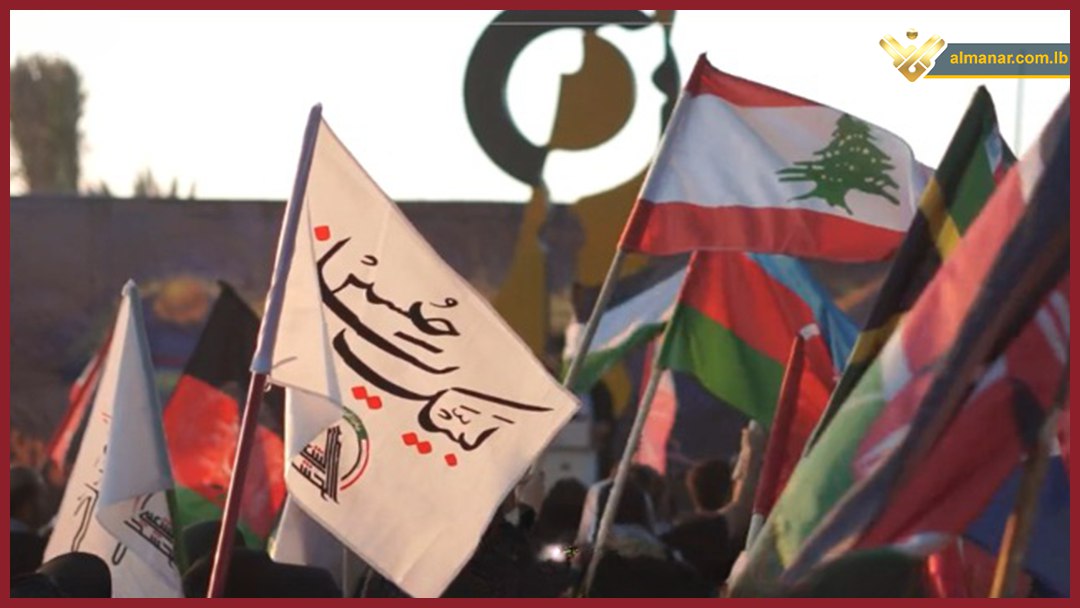Beirut International Airport buzzed with thousands of Lebanese passengers heading to join the annual Arbaeen march, which commences in Najaf and ends in Karbala, Iraq. The groups departing on Sunday (September 3), for the “journey of love” coincided with an increase in passenger traffic, signifying the end of Lebanon’s tourism season.
Based on its daily monitoring of planes and passengers, the airport’s aviation authorities reported that the number of passengers on Saturday, September 2, was a record figure of 23,623 departures.
*🚨 زحمة مغادرين خانقة في مطار بيروت الى العراق لزيارة الأربعين بالاضافة الى المغتربين والسياح مع اقتراب نهاية فصل الصيف* pic.twitter.com/h7RcGDm2je
— علي هادي سردار (@merssadb) September 2, 2023
Given that the 3rd of September is the deadline for travelers to join the Arbaeen march in Iraq, Beirut airport was poised to break another departure record, the greatest in the Lebanese aviation’s history.
“We expect that by the end of September 3, that is, at midnight, we will exceed the number of 24,000 passengers recorded on August 31, 2019. As a result, we will have set the highest record in the airport’s history,” Fadi Al-Hassan, president of Beirut Rafik Hariri International Airport, told Al-Manar TV.
Amid these record numbers, and remarkable number of flights from Beirut to Najaf, one must seek answers: What drives Lebanese from different walks of life to abandon their day-to-day responsibilities and flock to the holy city of Karbala, despite the country’s stifling economic crisis?
Overview on Arbaeen
Arbaeen falls on the 20th of Safar AH, which corresponds to the 40th day since Imam Hussein ibn Ali-ibn-Abi Talib’s (AS) martyrdom in the Battle of Karbala by the army of Ubayd Allah-ibn-Ziyad on the 10th day of Muharram, 61 AH. Muslims from all across the world gather every year to pay tribute to Imam Hussein (AS), his family, and his companions who sacrificed their lives to preserve true Islam.
According to Islamic narrations, Sayyeda Zainab bint Ali and Imam Ali-ibn-Hussein Al-Sajjad (AS), accompanied by Imam Hussein’s orphans and children, marched to Karbala to visit the martyrs’ graves on Safar 20, 61 AH. Since then, the 20th of Safar has become the day when Imam Hussein’s devotees arrive at his holy shrine in Karbala after walking for many days from various cities in Iraq.
As a result, this occasion has become one of the most important annual million-man gatherings on earth, bringing people from various countries, races, and ages together to march toward the shrine of Imam Hussein (AS) and his brother Abi al-Fadl al-Abbas in the holy city of Karbala.
Unmatched Iraqi Generosity
On the Arbaeen anniversary, Iraqis open their doors to visitors, and the Hussein Shrine is responsible for providing logistical services. Voluntary clinics also extend along the Najaf-Karbala Road (about 80 kilometers) to aid those who may suffer from fatigue or need an ambulance. In addition, people fund and organize Husseini processions, which constitute of buildings or stalls where food, beverages, health services, and sleeping areas are offered for free. This remarkable scene, where the rich and the poor join hands, creates a spiritual atmosphere all the way to Karbala.
Ya Allah, Grant us the Walk of Arbaeen one day.❤️#Arbaeen2023 pic.twitter.com/SlctOwTb1T
— ﻓضّـــة ♡ (@Anaa_Ghadeeri) August 28, 2023
Al-Quds Road Passes through Karbala
Based on Imam Khomeini’s commandment, which advised Muslims to transform Ashura from a theoretical idea into an effective revolutionary movement, the Palestinian cause is highly present in Arbaeen processions. This year, pictures of Palestinian martyrs and monuments to Al-Aqsa Mosque have been seen disseminated along the road from Najaf to Karbala, signifying the pilgrims determination to embrace this massive gathering in a bid to spread the word of truth and reaffirm their devotion and commitment to liberating Al-Quds.

The voyage of Arbaeen, with all its manifestations of devotion to Imam Hussein (AS), and acts of charity, as well as confronting oppression symbolizes a journey of love where Lebanese and Muslims from across the world renew their allegiance to the awaited savior of humanity who will fill the world with justice and equity, as it has been fraught with oppression and tyranny… Imam Mahdi (AS).
Source: Al-Manar English Website







